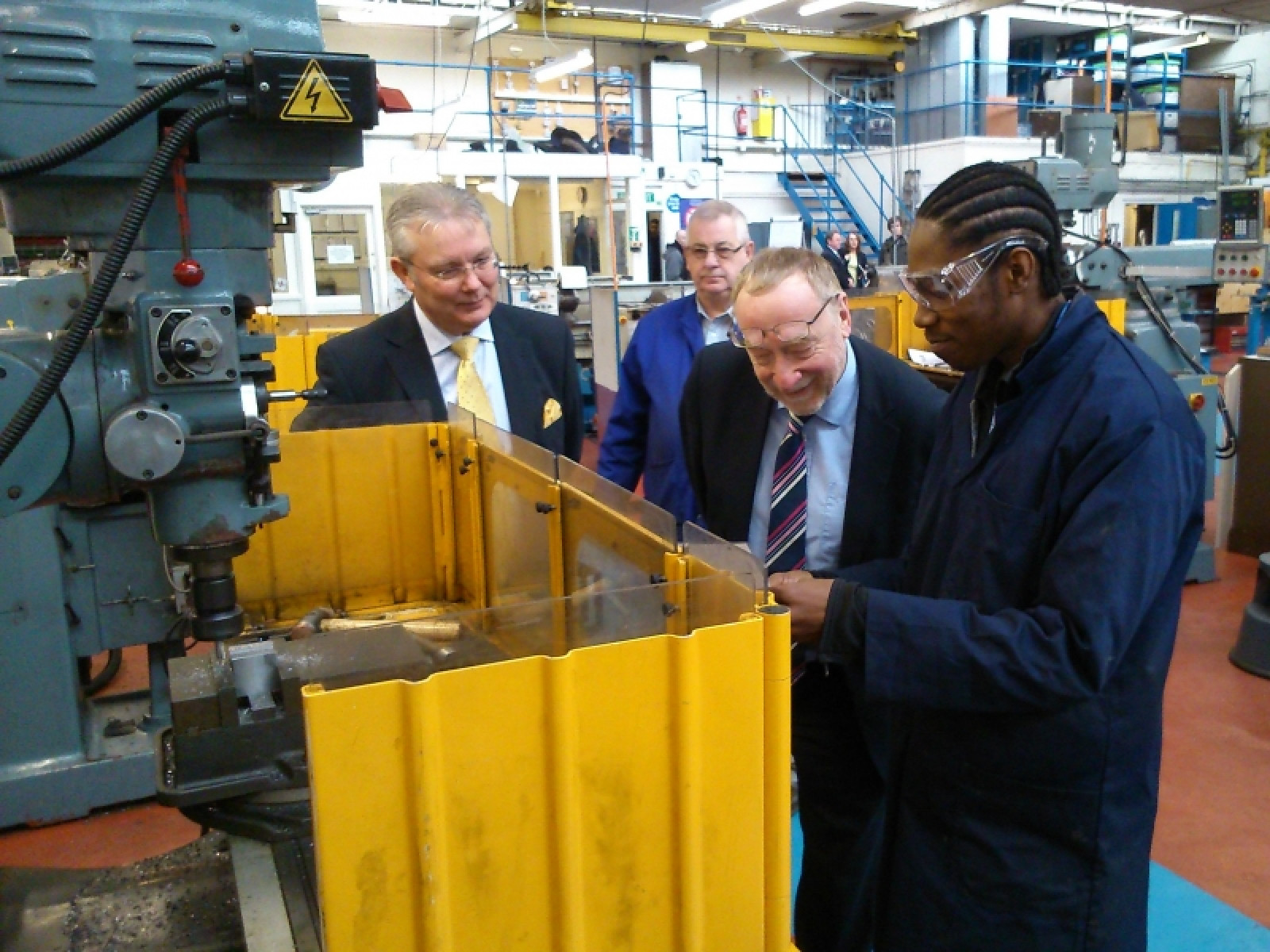Sandwell Training Association (STA) recently hosted a visit by Adrian Bailey MP, who met with local manufacturing and engineering apprentices and potential employers to discuss the government's focus on apprenticeships.
Mr Bailey is a British Labour Co-operative politician, who has been the Member of Parliament for West Bromwich West since winning the seat at a by-election in 2000.
STA Chief Executive, David Moss discussed the impact on how a lack of government funding can potentially dissuade SMEÂs from hiring apprentices. Smaller companies with limited time and finances may find committing to an apprenticeship scheme more challenging. This sentiment was echoed by representatives of Lawday Engineering, Hewigo UK, GFSA and Shakespeare Forgings.
The graduate and school leavers skills gap has come under huge scrutiny within the manufacturing and engineering sector. Analysing the UK data by sector shows that engineering enterprises describe 31.7% of their vacancies as hard-to-fill for professionals, in comparison to 17.6% within other sectors.
To help fill the skills-gap, schools must help to advertise a desirable path into vocational training, rather than measuring their success rates on the amount of students they can send to University. Mr Bailey stated: ÂAt the end of the day, schools are going to be judged on their ability to attract students to University. So it is up to the government to widen the criteria, by which schools are judged, in order to change the culture that prevails within schools.
ÂIf you can get the schools, the businesses and the training providers adequately invested and working together, they could create a generation of young people who will do very well. Not just locally, but potentially internationally if they get the right qualification, because that demand is out there. Becoming a good quality engineer, youÂll have a fantastic career and opportunities to travel that are undreamt of by so many people here.Â
However, the skills-gap does not revolve solely on the responsibility of schools. The government need to successfully advertise and promote the benefits that a career within engineering or manufacturing can provide young people. The government seem to be falling short in the successful advertisement of apprenticeships on the internet.
Mr Bailey revealed the government's failure in reshaping their marketing schemes which are used to attract apprentices, as he stated: ÂOne of the most frightening statistics is discovering the tiny proportion of people that actually found out about their job through the formal government scheme. Most people do it through the internet or personal contacts and that poses quite serious issues to the government.
ÂWe are spending vast amounts of money on formal systems which quite frankly arenÂt delivering. What nobody I think has come up with is what is a more effective way of doing it. I think it has got to be internet or social media based.Â
National Apprenticeship Week takes place between 14-18th March and provides the government with a huge opportunity to successfully advertise and target their marketing towards addressing the skills gap within manufacturing and engineering. However, the government tends to use these events as a celebration of the success of apprenticeships and the positive impacts they are having on individuals who are employed.
Mr Bailey responded to these assumptions, by stating: ÂOne of the accusations that IÂve levelled at the government, is because of its concentration on numbers and headline figures, it really disguises whether they are satisfying the real issues that are there.
ÂI think it is because the government are applying short-term politically driven objectives to what is quite a profound problem, Until you have a system which deals with the causes of the shortage of skills, then we are not going to be able to get the best return of investment.Â
The AssociationÂs direct contact with a large number of local companies allows it to keep fully abreast of the current progress and needs of local industry and to reflect these needs in the range of training and services offered. Without the direct help of the government, fantastic charitable organisations like STA will find it increasingly difficult to help address the skills gap that the manufacturing and engineering sector currently faces.











